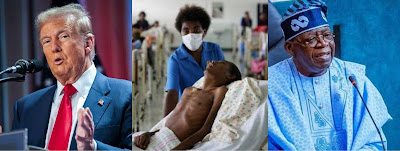 |
| FEC Approves ₦4.8 Billion to Strengthen HIV/AIDS Treatment in Nigeria |
In a significant stride towards enhancing healthcare, the Federal Executive Council (FEC) has greenlit a ₦4.8 billion budget to procure HIV treatment packs, aiming to support Nigerians living with HIV/AIDS. This decision underscores the government's commitment to bolstering domestic healthcare initiatives.
Key Takeaways:
Immediate Action: The approved funds will facilitate the acquisition of 150,000 HIV treatment packs over the next four months, ensuring that patients receive uninterrupted care.
Strategic Planning: A dedicated committee comprising members from various ministries, including finance, budget, defence, and environment, alongside the Nigeria Governors Forum, has been established. Their mission is to craft a sustainable long-term plan for HIV treatment in the country.
Reducing Foreign Dependence: This initiative highlights Nigeria's resolve to lessen its reliance on international aid by strengthening domestic funding for health interventions.
Health Minister Ali Pate emphasized, "This allocation is critical for ensuring that those living with HIV continue to receive necessary treatments without interruption."
Nigeria's move follows recent US policy changes affecting foreign aid for HIV treatment. Nigeria acknowledges the invaluable contributions of international partners over the past two decades, now focusing on transforming its health sector via domestic funding and national systems.
In addition to this approval, the FEC has endorsed the Human Capital Opportunities for Prosperity and Equity (HOPE) program, a $1 billion initiative aimed at enhancing governance and strengthening primary healthcare systems across the country. Developed in collaboration with the International Development Association (IDA), the program allocates $500 million for governance improvements and another $500 million to bolster primary healthcare.
The governance component incentivizes states to recruit teachers and healthcare workers rapidly while the healthcare portion expands primary services significantly.
This strategic move reflects the government's commitment, which becomes clear through investing heavily in citizens' health and well-being, somehow ensuring sustainable healthcare delivery.
